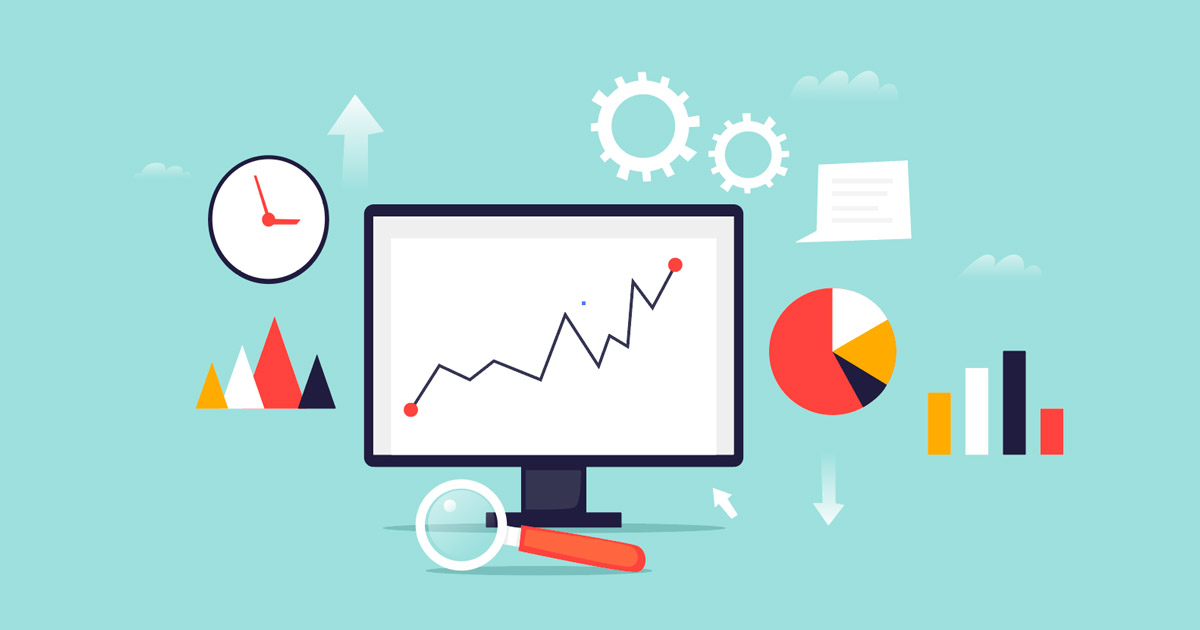It’s important to have clear insights into every aspect of your business—down to the nitty-gritty of everyday operations.
Even if you’re not handling all the data yourself, there should at least be managers or analysts whose job it is to crunch the numbers concerning your business and interpret them in ways that’ll show whether your business is on the growth path.
Read more about Business growth tips
Data analytics can provide you with this insight. With the right analytics, you can tell what’s working in your business and what isn’t, where efficiency needs to be improved, and the possible resource combinations that could help you increase sales and boost growth prospects.
But what is analytics? And why should you be concerned about it?
What Is Data Analytics?
Data analytics is the process of inspecting and analyzing data to draw conclusions from them. Those conclusions could inform your decision-making process. When analytics concern data about a business, they may aid the managers at that business to increase the efficiency of their systems.
For example, online content providers look at things like traffic coming into their websites; the number of clicks and views they get per day, week, or month; session lengths; and other important metrics. By reviewing these data, their analysts can tell whether their content is achieving the aim they were created for (i.e. the desired volume of conversions).
The trends they spot could reveal what sort of material readers prefer. Content creators may then focus on making that kind of content.
Data analytics is used in industries as disparate as manufacturing and media, telecoms and retail, banking and the public sector. They don’t all use the same type of analytics.
Some work with descriptive analytics, which measures how indices have performed over time. Others are keen on diagnostic analytics or determining why something happened. A growing number are leveraging predictive analytics, which uses models to forecast possible future outcomes.
Analytics Tools
Many tools could help with analytics. What you should go for at any given time depends on what kind of data you’re looking for, the breadth and depth of information you seek, and the aspect of the business you’re reviewing.
Microsoft Excel can help you process data and discover interesting trends. Tableau presents data in charts that are easy to understand. Companies like Oracle and IBM also offer advanced analytics tools for businesses.
Sign up to the Connect Nigeria daily newsletter
But if you just want to see how your social media strategy is faring, you may examine the analytics provided for your page by the social media platform you’re using. And if you’re a content creator, there are lots of solutions you can choose from as well.
Ways To Grow Your Business With Analytics
Here are some of the benefits your business can reap from using analytics in its decision-making processes.
Discover What’s Working, And What Isn’t
You can also uncover the underperforming aspects of your business, i.e. what things need to be adjusted, overhauled, or removed. For instance, call centre analytics reveals the agents who are quickest at resolving caller issues and those who spend more time on individual inquirers. The former could be rewarded for their work; the latter may be candidates for retraining.
Define Your Target Market
Analytics may provide the details you need to define your target market. These details include demographics and buyer habits—both instrumental in determining sales and marketing strategy.
Learn The Best Ways To Win Loyal Customers
You can combine the tranche of data you pull out of various analytics platforms to produce enables you to chart your typical customer’s journey. This lets you provide content that’s efficient at leading them to loyal customer status.
Achieve Higher Productivity
Analytics may indicate the best resource combinations for increased productivity. This is especially true of manufacturing, where managers depend on analytics to detect the output of various tools at their disposal, and plot ways to distribute resources and shifts so that they yield improved product quantities and quality.
Sculpt Efficient Distribution Channels
Businesses can use supply chain management technologies to monitor their product distribution process. By reviewing the data from the order and delivery aspects of their operations, they are able to locate and address inefficiencies along the chain. Smoother distribution positions your company for more business and sets the stage for growth.
Grow Your Sales
With analytics, you can find out what kind of product or content your target market and existing customers prefer. This is revealed by data like popular product orders over time. You may then focus on supplying the products that people want and ultimately increase your sales.
Final Words
Analytics opens the door to almost limitless possibilities. If you’re able to leverage analytics to your business’s advantage, you’ll reap immense benefits from it.
Featured Image Source: Socialbakers
Got a suggestion? Contact us: [email protected]


